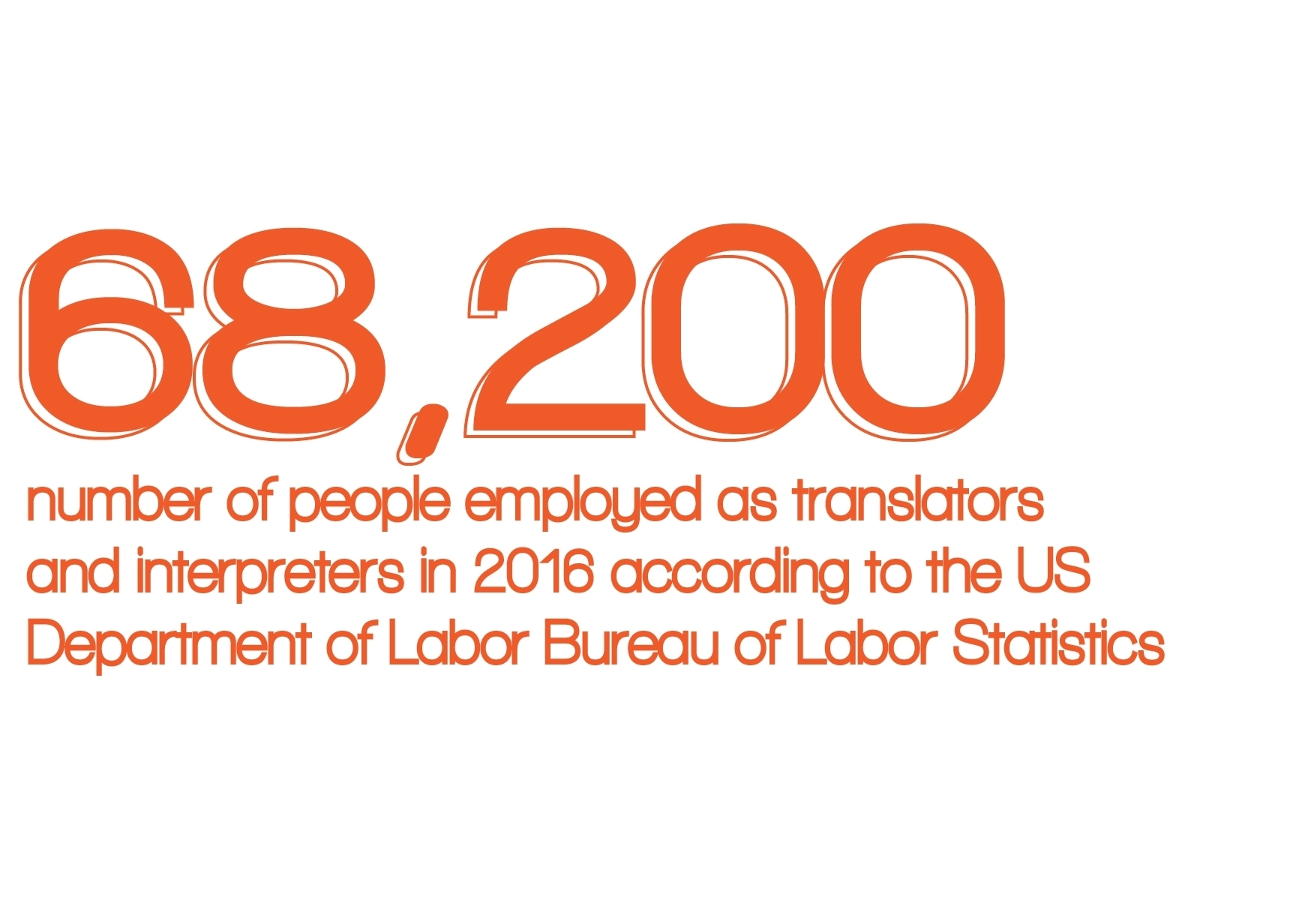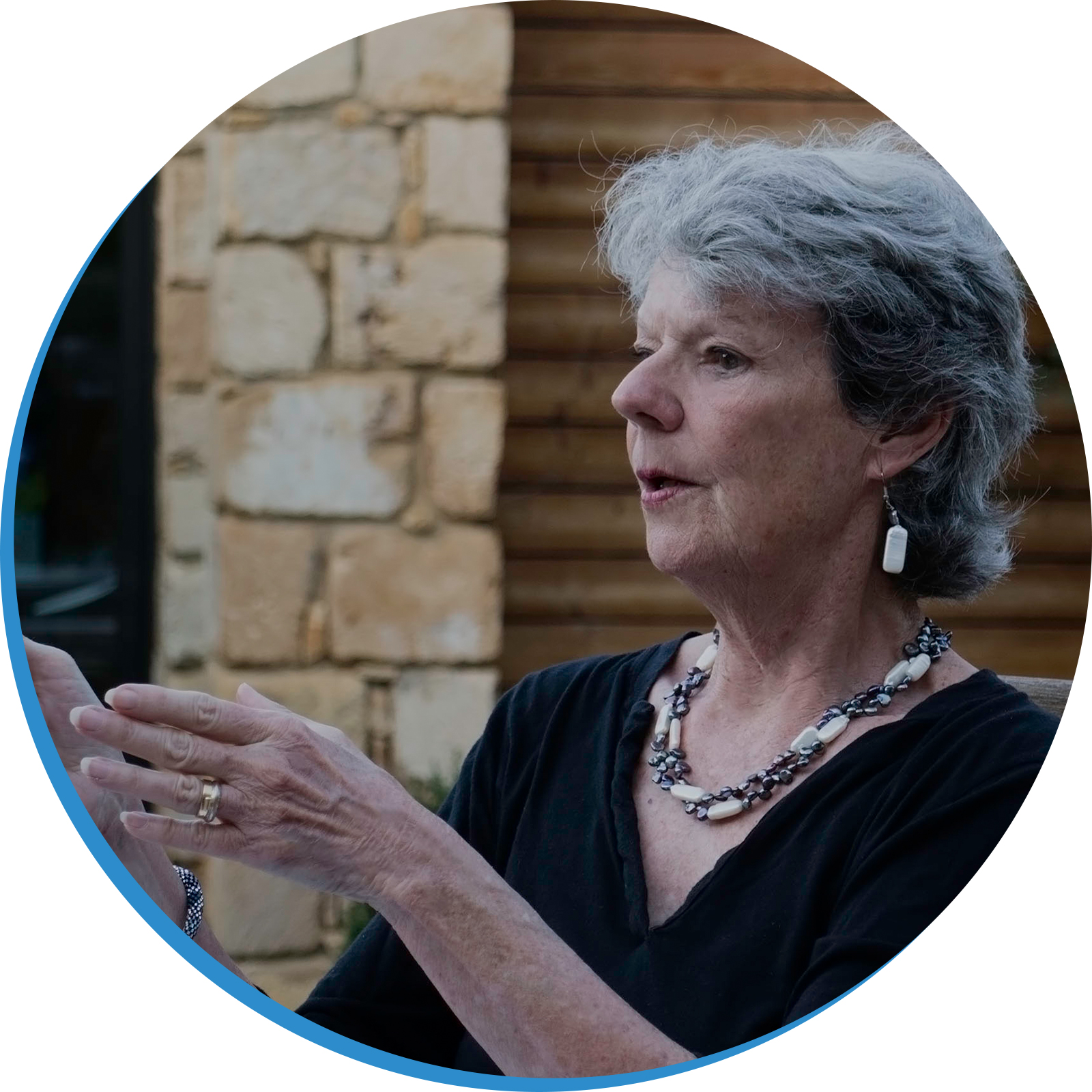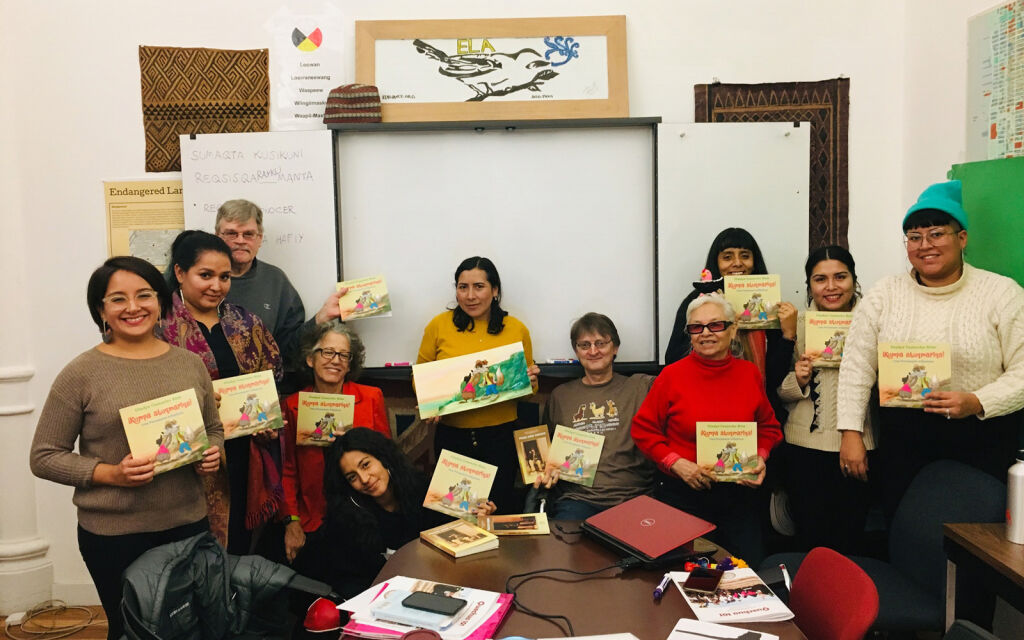Language Entrepreneurship: Q&A with Kathleen Diamond
With today’s technology, we often take for granted the translation services at the tips of our fingers: We can search for translators and interpreters on the internet, find books translated into countless languages in an instant, and even use Google Translate to do basic translations instantly. But this hasn’t always been the case. Kathleen Diamond was a pioneer in the use of technology for the delivery of language services in the 1980s, creating her own translation and interpreting service from the ground up in a time when there were significantly fewer resources available — especially for women. As she continues with her language entrepreneurship, she hopes to encourage more universities to train students as linguists and translators to meet the growing demands of her industry.
Q: How did you decide to go into language entrepreneurship?
A: Sometimes life doesn’t give you direct paths. This was back in the twentieth century and there weren’t a whole lot of options, especially for women. If you were studying languages, you were probably going to be a teacher. So I was a teacher. But in my early thirties I discovered that I wanted to do something very different. I left the classroom and went into entrepreneurship, building my own business. I suppose the only model for commercial language instruction that I knew of was the commercial school of Berlitz. I applied to teach there, and they were going to pay me a very low hourly rate. I think that sparked something within me. What is it that makes up the difference between what they’re paying me and what I can see that they’re charging their students? And that led me on this long, wonderful entrepreneurial journey.
Q: What were the first steps you took when you decided to create your own business?
A: I launched the company in 1979, so the internet wasn’t alive and accessible. A lot had to do with the people that you knew, the things that were going on around you. In my case, since I was living very close to Washington, D.C. (in Alexandria, Virginia), there was an ad in the Washington Post that said: “Women! Start your own business. We’re holding a workshop.” It was held at the Mayflower Hotel, and I signed up! And I sat there in that hotel ballroom and I took notes like a good student, and I just simply followed my notes. I opened up a bank account. I named this entity that I was creating “Language Learning Enterprises.” I knew that it was going to be more than just simply language learning. I also had to be prepared to offer translation and interpretation services as well. And then I had to figure out, well, what do I do next? Do I go for clients or do I go for staff? For teachers? How do I do this? I came to the conclusion that I’d be more comfortable having some teachers behind me before I went into the Department of Agriculture or the Defense Department and said, “Hey, I’d like to bid on your language instruction contracts.”
The basis of entrepreneurship is creating something where there’s nothing.
So again, I put ads in the newspaper, the Washington Post. I had two hundred people respond, and I interviewed language instructors who taught languages from Arabic to Zulu. I obviously didn’t have an office, so I would meet them in various coffee shops over a period of time. And then I felt like I was ready. I began doing the tedious work of pounding the pavement. The obvious client for language instruction was the federal government, and I knew that they contracted with the private sector, Berlitz being one of their suppliers.
In those days you could just walk up the steps into the Pentagon. You could get in to talk to contracting officers, and that’s what I started doing. By early 1980, I had won my first government contract.
Then there was the next big problem: what about classrooms? You’ve got the teachers, you’ve got the clients, but now where are you going to teach them? So I came up with another good idea. I decided that Sunday schools would be a good place, because those were classrooms that wouldn’t be used on Monday through Friday. I went to my favorite church in Washington, D.C., across from the White House, Saint John’s, and I talked to the pastor. I made an arrangement with him, and I brought the government contracting officers down to see my classrooms, and they were amazed. They said, “Either she’s a crazy woman, or she’s really smart. We’re going to give her a chance.”
Q: As you’ve mentioned, the entrepreneurial process has changed a lot in recent years. You sold the company and became an independent consultant a few years ago; how did that show you how the process has changed?
A: As I tell my story, it all sounds obvious. But at the time, nothing was obvious. Each step was just as not there as the next piece of technology is not there now. As we move rapidly through the technology and its features, you take for granted that, five years ago, that didn’t exist either. So it’s all about creativity. The basis of entrepreneurship is creating something where there’s nothing. It doesn’t really matter if it’s talking about a brick-and-mortar classroom or about the way we do things now, using virtual classrooms and distance learning and virtual everything.

What the entrepreneurs of today are struggling with is in some ways very similar to what I struggled with. A, you have to create a product, B, you’ve got to identify clients, and C, you have to find a way to deliver the product to the client. The products and the clients still involve people, especially with services like interpretation. The way it’s delivered is the fun part: helping modern entrepreneurs, especially in the language field, deliver access to their language services the way the client wants it. Whether it’s a simple thing like on-site interpreting, where the interpreter comes to the hospital or the courtroom, or whether the client wants something more virtual, be it over the phone or video or through a mobile app — everything is possible now. And it provides great excitement in my industry.
It also creates some anxieties and some concerns, because in some ways the technology is way, way ahead of us. On your mobile app, you can have a Lyft or an Uber driver at your doorstep within minutes. But interpreters and linguists have different kinds of skills, so there’s a limited number of individuals who can provide interpreting services. You’re dealing with a limited resource but an access to it that’s immediate.
Q: Where do you think computer-based translation (e.g., Google Translate) fits into this picture?
A: I think it’s part of the mix. I think it’s an essential part of the mix. Because the truth is that there is a large body of translation work that needs to be done that is just repetitive and tedious. If we can get machines to help us with those tedious, repetitive translations, that frees up your professional, high-level translator to work on the essential things that must be translated by human beings. If you are going to have surgery, or if you’re going to have any kind of interaction with something that is complex, you’re just not going to want Google Translate. It’s really that simple. I believe there will always be a place for the human brain, human activity, in this most human of all activities, which is language.
Tediousness can be taken over by machine translation, but translators, if they’re smart, will keep themselves trained and keep themselves available for the high-level work. We know that a huge part of our planet is now actively in the global marketplace with languages that are quite difficult for Anglophones, so there is endless work to be done for human translators.
Q: One thing you’re passionate about is “professionalizing the language industry.” What do you mean by that phrase?
A: For the last three decades that I’ve been in the business, it’s still not recognized by many Americans that an interpreter and a translator are highly skilled professionals. Part of the problem is that they themselves don’t see themselves as professionals. There’s so much of a sense that if you speak another language, then you can interpret, you can translate. And that’s not the case. I am fluent in three languages, and I am neither a translator nor an interpreter. Yes, I can get you through a dinner, I can guide you through a marketplace, I can do the exercise, but not with the high-level skill that’s required by most institutions that are hiring our services. It’s a skill that requires study, requires practice, requires discipline, and it’s not automatic. Just because you speak another language does not mean you can do the work of transmitting the message correctly and accurately and consistently into another language.

There’s some progress being made in universities where you can actually study to be a translator or an interpreter. In fact, one of my missions right now is to get more universities involved with the commercial sector in the language services. The commercial sector needs to buy the language professionals’ skills, but we need the universities to get the linguists skilled. I’m working right now on this academic outreach with Middlebury College and the University of Florida, my alma mater, saying “Let’s get these kids coming in and saying they want to major in languages. Let’s get them ready for jobs that are out here that we only have a small pool available for right now.”
I think it starts with the individual themselves saying, “I have a skill that’s valid, it’s professional,” and then the marketplace seeing that what they’re buying is a professional skill, and then the price points being handled accordingly.
Q: Do you have any advice for someone who wants to enter the language industry or be a language entrepreneur?
A: First of all, I urge every American to study another language, any language. I’m in despair over the fact that we’re cutting back programs. So I urge professional teachers, superintendents, school administrators, our legislators, everybody to think of language as being an essential part of our kids’ education. Once kids start and get the bug and learn another language, then helping them understand that there are lots of jobs out there that require a second language.
Employers and educators need to talk to each other. Language company owners need linguists, and the pipeline is running dry.
 Kathleen Diamond is a language entrepreneur and founder of Language Learning Enterprises (LLE), a company that provided language instruction, testing, translation, and interpretation. She is currently a language consultant, a volunteer on the Board of the Association of Language Companies, and Membership Secretary for ASTM F43 Language Services and Products.
Kathleen Diamond is a language entrepreneur and founder of Language Learning Enterprises (LLE), a company that provided language instruction, testing, translation, and interpretation. She is currently a language consultant, a volunteer on the Board of the Association of Language Companies, and Membership Secretary for ASTM F43 Language Services and Products.



